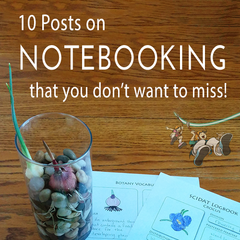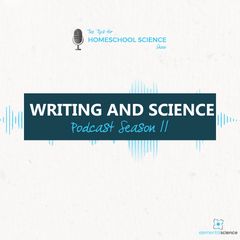Science experiments can be hard on homeschoolers, but they don’t have to be.
Today, I wanted to share five easy tips for ensuring a successful learning experience from your science experiments.
5 Tips for Doing Experiments at Home
Tip #1 - Have the materials on hand.
“Hello pot?”
“Yes.”
“This is the kettle and I’m just calling to let you know that you are black.”
Seriously, this first tip is for me, too! I usually maintain a fairly well-stocked science supply cabinet as I’m always trying out new experiments for our programs, but I’m embarrassed to admit that there has been more than one occasion when I have had to skip an experiment in our homeschool because I lacked the supplies.
If you want to succeed with experiment, you first need to have the supplies to do the experiment.
So my advice is to gather all the materials you will need at regular intervals. This can be at the beginning of each week, every six weeks, twice a school year or before the year even begins. If you do keep a science supply cabinet, be sure to check it a couple of days before you are scheduled to do the experiment as you may find that someone has raided your cabinet :-)!
Tip #2 - Read ahead.
It’s important to read through all the directions so that you won’t miss a step along the way (see tip #3). It’s also important to read the expected results and explanation so that you, the teacher, have an idea of where the experiment is going to take you.
Even I read through the entire experiment before doing it! It’s much easier to run an experiment when you can see the bigger picture.
Tip #3 - Follow the directions.
This seems like an easy thing to do, but if you follow experiment directions like I follow a recipe you could be headed for disaster. In the kitchen, a little more or a little less of a certain ingredient can create a culinary disaster.
Trust me, I’ve tested this one out…several times.
The same can be said for an experiment. The directions have usually been tested many times to ensure your success. It’s worth taking the time to follow them.
Tip #4 - "Some days are like that, even in Australia."
I had to quote one of my favorite books, Alexander and the Terrible, Horrible, No Good, Very Bad Day, for this one. Let’s face it, some experiments just don’t turn out as planned, despite your best efforts.
The best thing to do in this situation is to talk about why. For instance, if you tried the experiment pictured below and your yeast didn’t bubble, you can talk about why. Maybe the water was too hot, maybe you didn’t add enough sugar, or maybe your yeast was dead.
You may not have had a successful science experiment, but you still walk away with a successful learning experience.
Tip #5 - If at first, you don't succeed, try, try again.
Don’t beat yourself up if you’ve failed at an experiment. Pick yourself up and get ready for next week’s experiment.
It’ll be a new day, a new experiment and this time you’ll be able to tackle the challenge because you have read this post and now you’re ready for it!
Wrapping it Up
Well, I’ve shared a few of my tips, how about yours? Leave a comment and let us know what you think!
Learn more about experiments by reading the following posts:


